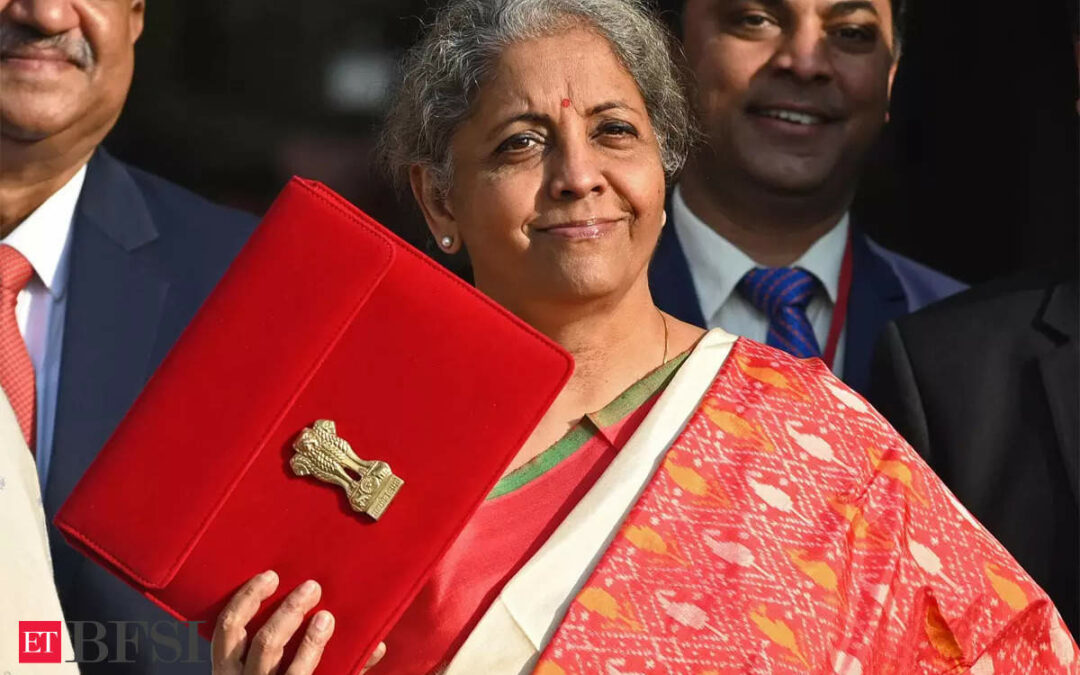The Economic Survey 2023-24 tabled by Finance Minister Nirmala Sitharaman in Parliament on Monday said the Indian economy is on a strong wicket and stable footing, demonstrating resilience in the face of geopolitical challenges.
“High economic growth in FY24 came on the heels of growth rates of 9.7% and 7%, in the previous two financial years.”
The Survey said that the headline inflation rate is largely under control, although the inflation rate of some specific food items is elevated. The trade deficit was lower in FY24 than in FY23, and the current account deficit for the year is around 0.7per cent of GDP.
However, it said that the Indian economy needs to generate an average of nearly 78.5 lakh jobs annually until 2030 in the non-farm sector to cater to the rising workforce.
“For the recovery to be sustained, there has to be heavy lifting on the domestic front because the environment has become extraordinarily difficult to reach agreements on key global issues such as trade, investment and climate,” the Survey read.
“Public investment has sustained capital formation in the last several years even as the private sector shed its balance sheet blues and began investing in FY22. Now, it has to receive the baton from the public sector and sustain the investment momentum in the economy. The signs are encouraging,” said the Survey.
Inflation projection
Economic Survey 2023-24 said that the inflationary pressures stoked by global troubles, supply chain disruptions, and vagaries of monsoons have been deftly managed by administrative and monetary policy responses. As a result, after averaging 6.7% in FY23, retail inflation declined to 5.4% in FY24.
It said the decrease in retail inflation in FY24 was driven by a fall in core inflation – both goods and services. Core services inflation eased to a nine-year low in FY24; at the same time, core goods inflation also declined to a four-year low.
Food inflation has been a global concern over the past two years. Within India, the agriculture sector faced challenges due to extreme weather events, depleted reservoirs, and crop damage, which impacted farm output and food prices. Consequently, food inflation stood at 6.6 per cent in FY23 and increased to 7.5 per cent in FY24, according to the Survey.
Going forward, the RBI projects inflation to fall to 4.5 per cent in FY25 and 4.1 per cent in FY26, assuming normal monsoon and no external or policy shocks. Similarly, the IMF forecasts inflation of 4.6 per cent in 2024 and 4.2 per cent in 2025 for India, it added.
Finance Minister Nirmala Sitharaman is all set to break records by tabling her seventh Union Budget on July 23, 2024.
A day before the presentation of the Budget, the minister tables the Economic Survey of 2023-24 in both the Lok Sabha and Rajya Sabha.
This follows an important press conference by Chief Economic Adviser V. Anantha Nageswaran.
The survey typically comes out on January 31, a day before the presention of the Union Budget for the next financial year.
However, due to the Lok Sabha elections, the government takes a different route and presents a shorter report titled “The Indian Economy – A Review” and tables an interim budget in February.
After the dissolution of the parliament and the conclusion of elections, the newly-elected government presents a comprehensive Economic Survey and Budget for the financial year.
(This is a developing story)










